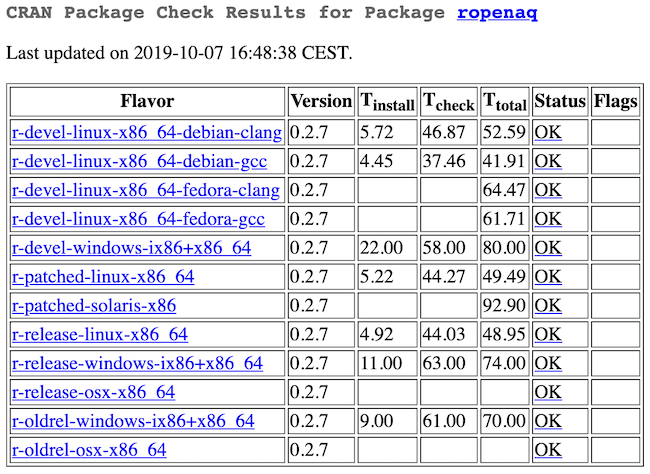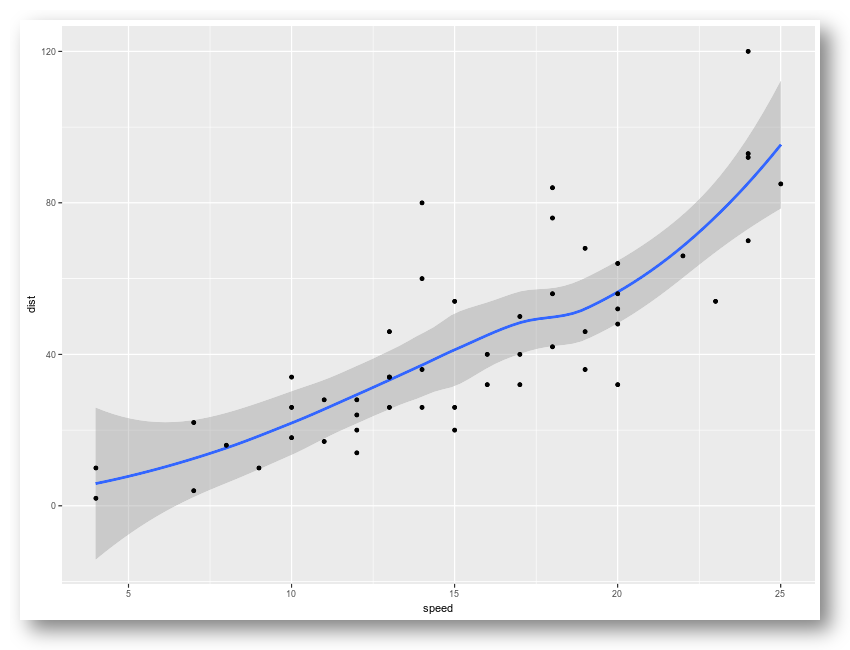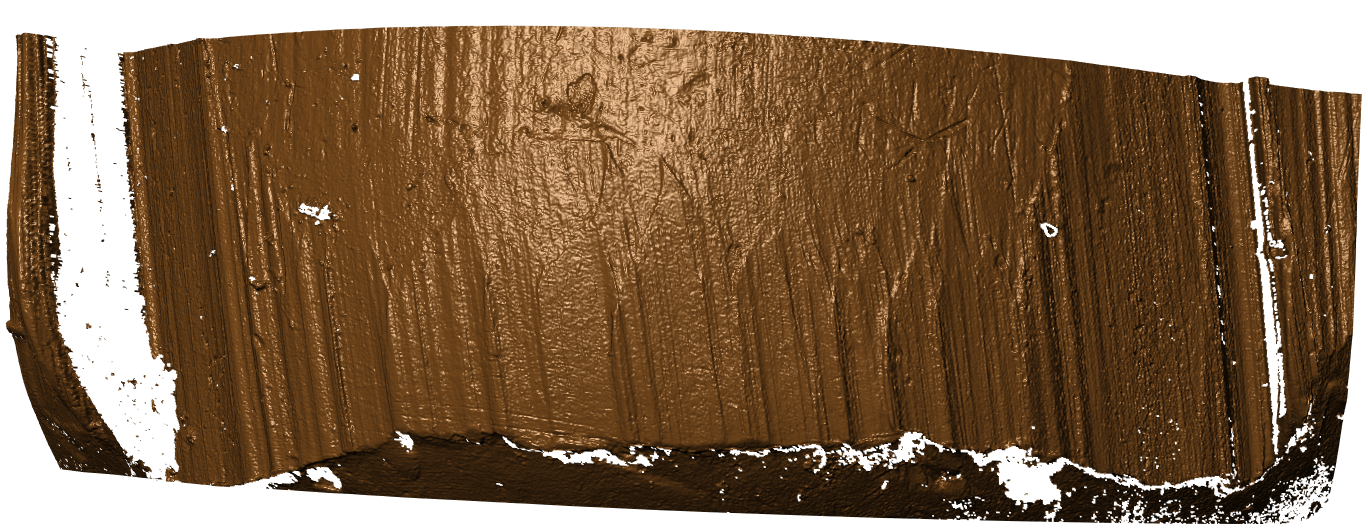
If you have an R package on CRAN, you probably know about CRAN checks. Each package on CRAN, that is not archived on CRAN 1 , has a checks page, like this one for ropenaq:https://cloud.r-project.org/web/checks/check_results_ropenaq.html The table above is results of running R CMD CHECK on the package on a combination of different operating systems, R versions and compilers.



